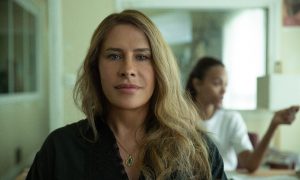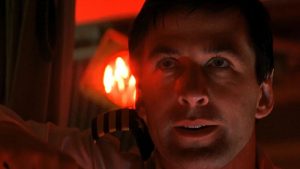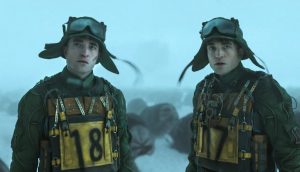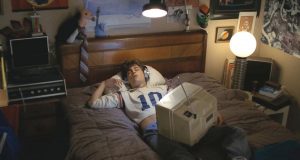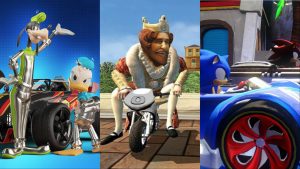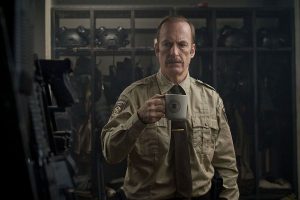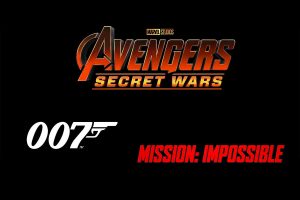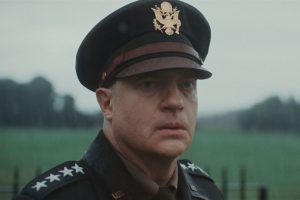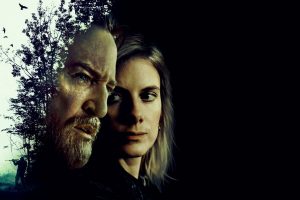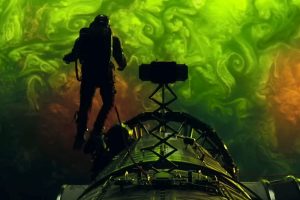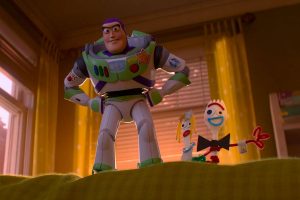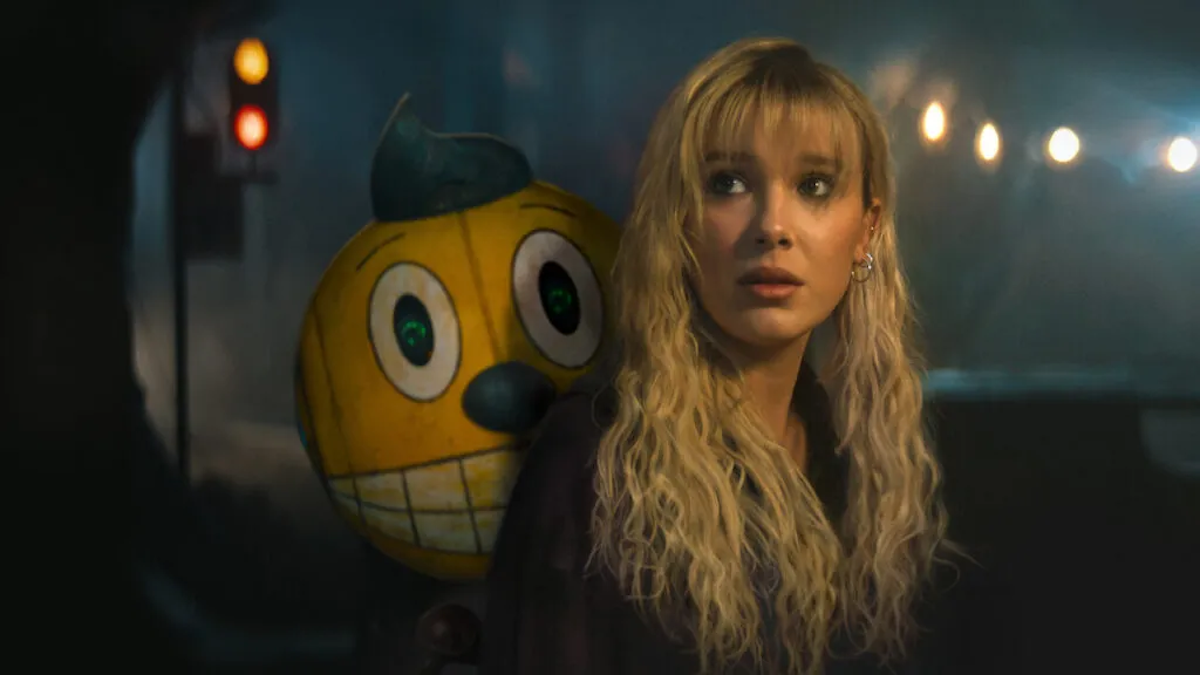
This article appears in the new issue of DEN OF GEEK magazine. You can read all of our magazine stories here.
One of Stanley Tucci’s earliest memories is from the 1964 World’s Fair.
“I remember very clearly going to the 1964 World’s Fair in Queens when they built that whole thing,” Tucci tells Den of Geek magazine in an exclusive interview. “I was three, seeing this robot talking, and I remember thinking, ‘That’s incredible, that is the future. I have it so clearly in my mind.”
Those animatronics, made by Walt Disney, are a matter of public record. However, there are events following that World’s Fair that Tucci does not recall.
“His animatronics became sentient at some point and were commercialized and sold and moved into a service industry role,” director Joe Russo tells us. “People bought them with their very shiny pleasing appearance, and then those sentient robots got angry with us and felt mistreated and that is where the post-war dystopia came from.”
Of course, there is a very good reason that Stanley Tucci doesn’t remember any of that—it never happened. Russo is describing the chain of events that led to the alternate 1990s of his and Anthony Russo’s new movie, The Electric State, coming to Netflix next year.
Signs of the Times
The film is a story of sentient robots and virtual reality systems, and yet, based on the work of retrofuturist artist and writer Simon Stålenhag, it is grounded firmly in an imaginary version of 30 years ago.
“The ’90s is the right period for what the story was,” says Russo. You’re starting to get into compact discs and DVDs, the advent of cell phones, you’re starting to get into the interconnected era, and so it felt like the right period for the tech to plausibly sit in this fantasy space.”
The alternate-history setting also helped prevent the story from feeling too preachy. “Period is really important when you’re talking about topical themes because everyone hears every day how bad their phones are for them, how bad screentime is for them, and we don’t want to shove that down their throat,” Russo explains.
This theme was one of the things that attracted Tucci to the project in the first place. “I’m fascinated by technology because I don’t know anything about it, and I’m very bad at using it,” he says. “But how it has changed over my lifetime is so significant, and we are, at times, ruled by it, which is a frightening thing.”
Russo adds: “We’re trying to tell a story in a way that asks some thoughtful questions, but this is all coded in fantasy and science, so it feels like a fable.”
It is an approach that, in many ways, draws on the Russos’ experience directing Dan Harmon’s Community.
“On Community, we played with a lot of extreme satire and cultural commentary, and there’s a very fine line between satire becoming intellectual and distancing, and satire that keeps you in the story,” Russo says.
Disney Villain
One aspect of The Electric State’s satire could be seen as dangerously on the nose—that the robots of this world were created by Disney. Not only is Disney a big corporation with a keen interest in preserving its own IP, but it is also the Russos’ former and future employer.
“I mean, we didn’t ask them!” Russo laughs. “While we were coming up with the story, we said, ‘How could you have ended up in this alternate 1990s? What could have changed? Who were the innovators of the time who could have led you here?’”
Walt Disney and the Disney animatronics of the 1960s seemed an obvious candidate.
Tucci plays tech billionaire Ethan Skate (which Tucci describes as “very ironic” given his discomfort with technology). Not as recognizable as Disney, but ask someone to identify a tech billionaire, and it’s a short list.
“Those guys, they are incredibly charming, although they then become uncharming later. They’re almost sociopathic in their ability to win people over and convince people that what they need to do is what they need them to do,” Tucci says.
Those ideas started with Stålenhag’s graphic novel, The Electric State, which attracted the Russos’ interest when it was still on Kickstarter. While that book is a languid, almost Kerouacian road trip, the Russos’ movie strikes a different tone.
“It’s filling the blanks, really. There’s a big world there,” Russo says. “You have to take some of the story that is not in the book and put that on camera in order to tell the complete story. That’s what drew us to the level of immersion, creativity, and commentary in the artwork.”
While the story might have new material, working with production designer Dennis Gassner, the Russos have brought that imagery to the screen.
“When I saw it, I said that I had never seen a movie like that before,” Tucci says. “I had never seen a movie look like that before. Your brain almost can’t reconcile it, the enormity of the robots and the strangeness of them and how clearly they are so themselves. They’re funny looking and extreme but also incredibly moving.”
The Electric State premieres on Netflix on March 14, 2025.
The post The Electric State Imagines How Walt Disney Destroyed the World (in an Alternate Timeline) appeared first on Den of Geek.
